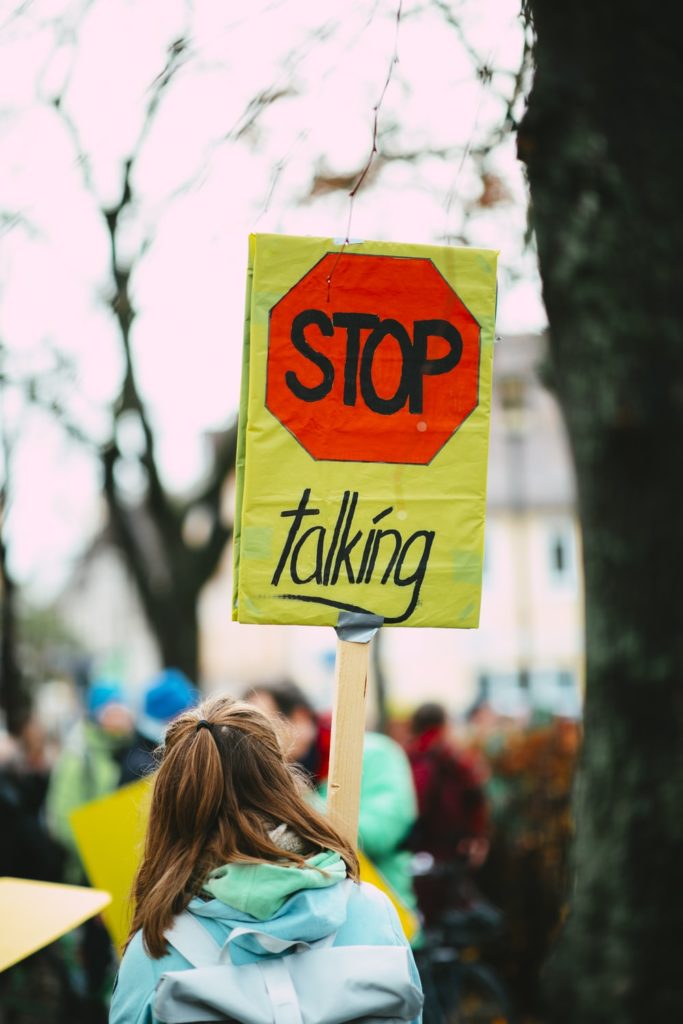In the wake of the protests over the past week, I have made some time to read a number of statements by other college and university presidents. Eloquently written, they remind us of our values.
Some people said they stand against hate, bigotry, profound ignorance and casual cruelty. Others discussed valuing inclusiveness and equality, as well as civil and human rights for all. Some wrote about how such actions were an anathema to the values of our society and affirmed a commitment to being inclusive. Many added a quote from Martin Luther King Jr.
I read dozens of statements. Many were from August of 2017 after Charlottesville. The more recent statements share the same ideas and concepts. It made me wonder, what impact have we made over the past three years? Did we set goals to address issues like racism that impact our everyday lives? Were we troubled by having to again denounce acts like this?
After Charlottesville, I wrote “Thin Words to Thick Action: A Living Statement on Charlottesville” on my blog and shared that I had discussed issuing a statement with my team. I decided not to write one and instead engaged some students at my institution, Dillard University, in conversation to see how they were processing the issue, especially since it happened on a college campus.
But part of my piece reflected on the challenge issued by Bruce Ough, president of the United Methodist Church Council of Bishops. His words pierced my heart and mind when he wrote, in part, “We share collective responsibility to turn our thin words into thick action. We share collective responsibility to break our silence … This is the moment for The United Methodist Church and all peoples of faith to be bold in our witness against racism and white supremacy.”
Thin words. Thick action.
I wrestled with what this might look like. I found inspiration from Benjamin Elijah Mays, legendary president of Morehouse College who mentored the man everyone is quoting these days, Martin Luther King Jr. In a biography of Mays, Randall Jelks, an associate professor of American studies at the University of Kansas, indicated that he wanted Morehouse to be “an incubator for critically engaged leaders,” a place where “students could thoughtfully and objectively examine themselves and the world around them.”
After Charlottesville I started a conversation, but what have I done since then? Not much.
It is really easy to get back to your routine once the crisis passes. I spent the remainder of 2017 and first part of 2018 working with members of Congress and officers of the U.S. Department of Education to have a $150 million Katrina loan to our institution forgiven, a critical objective. We continued completing our work for the reaffirmation of our accreditation, with reports and a visit due in 2019. Without accreditation, we don’t exist. And we spent 2019 acknowledging the 150th anniversary of the university, raising our public profile and generating philanthropic support.
We were witnesses, as Bishop Ough suggested, addressing the health of our community and creating space where people of different political and religious views can respect each other. We were inspired by prophetic preaching, we organized talks about law and society, and we hosted community forums. We began our sesquicentennial celebration with more than 700 students, faculty and staff volunteering in the community, a universitywide effort reinforcing work groups each and every year. We continued our active collaboration with local universities for Take Back the Night and deepened our partnership with the Human Rights Campaign, hosting a regional leadership summit.
But I haven’t focused enough to be able to say that I have prepared students who are ready to meet the societal challenges of the day. We simply kept doing what we normally do: very good activities but not enough. I feel this way because in this country, in 2020, a white police officer, knowing he was being recorded, still killed George Floyd.
He made a statement; it was a brutal reality check. His statement challenged me to do more.
I want to be more committed to the difficult. I want to give voice to those like Breonna Taylor, the black woman that police killed almost three months ago, but because we didn’t see the crime, we didn’t see her. I couldn’t find any statements unless it was linked to George Floyd. There was also little national outrage when Atatiana Jefferson, another black woman, was killed in her home. If I am going to write anything, it needs to be a call to action to bring light to cases like these of black women who are overlooked.
I want to find a way to ask the tough questions in between the atrocities, making sure we continue to address systemic racism without the flashpoint of a Charlottesville or Minneapolis. How do we pay more attention to the laws that are passed, who is elected to enforce those laws and where we can create opportunities for citizen oversight? What kind of routine education can we provide not only for our students but also for the greater community to ensure we keep up with the issues? My wife said we have to go from simply being caring and compassionate to being consistently committed to grappling with the issues.
In the book The Time Is Now, Joan Chittister writes, “It takes no small amount of courage to speak a different truth, to ask a different question than is common to our peers.” I have read some moving statements from my colleagues in response to the death of George Floyd. I have no criticism of those statements, but I want to profess a different truth.
No more statements.

